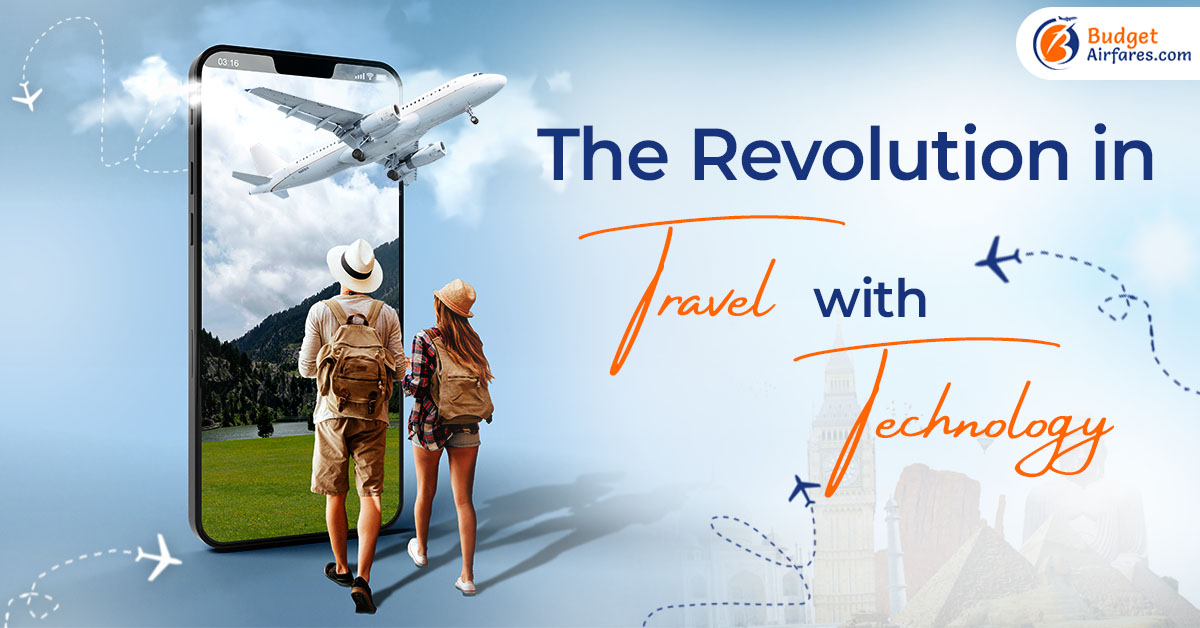Do you remember purchasing an airplane ticket from a live person? We also don’t. Budget Airfares provides a collection of USA to India Affordable Flight tickets, so don’t worry about anything.
Technology is something we have all become used to in the tourism sector. There are plenty of additional ways that modern digital technology impacts and advances the travel industry. The ultimate driving force behind the use of these technologies is crystal clear. It all comes down to making more money and growing the company, both enhance customer satisfaction. It results in lower operating expenses and improved productivity, first and foremost. Travel companies, airlines, and passengers all benefit from this scenario.
More technology will be necessary to meet the expectations of tomorrow’s consumers in light of the sharp rise in travel demand.
What role does technology play?
Customers are making USA To India Flight ticket Booking and allowing flexibility for what is available once they reach a place as a direct result of uncertainty. In the past, a travel agent might help with more extensive preparation but with more impulsive travel and locally-driven tourism, visitor centres with online booking capabilities have become increasingly important.
A fresh phase of Digital Travel with Technology:
In a world where technology is increasingly being used, the travel sector is witnessing a massive shift beyond basic comfort. Modern technological developments act as accelerators, affecting how we organize and start our travels. The travel agencies that embrace these changes are most likely to succeed in the long term as we navigate through a landscape defined by technological progress.
Practically, a new mode of travel has emerged, and we highlight some creative examples of tech- solutions for the Travel and tourism sector we hope to see more in the future:
Travel Apps:
Due to apps that function as virtual personal assistants, smartphones have become essential travel companions. The percentage of tourists who used travel agency applications before the pandemic was 30%; during the crisis, that number increased to 38%. The increased dependence on digital platforms for smooth travel experiences is highlighted by this trend.
Contactless Check-In and Payments:
Contactless processes have gained priority in the post-COVID age. Contactless mobile check-ins and payments, from airports to hotels, coincide with the demand for social distance and reduce common touchpoints.
AI Chatbots:
AI chatbots have become an efficient means for offering immediate support as more travelers depend upon them. These chatbots help travel agencies save costs and physical labor to simplify consumer interactions.
AR and VR:
Augmented Reality (AR) and Virtual Reality (VR) have permeated numerous industries, including tourism. Museums have online displays, and travelers can digitally explore destinations. Virtual reality technology’ immersive experiences are redefining how we interact with travel content.
Robotics:
Although not yet everywhere, automation is making inroads into the tourism business. From hotel receptionists to restaurant food service, robots are doing automatic procedures, improving customer experience, and lowering labor expenses.
Virtual Assistants:
Virtual assistants such as Siri and Alexa have found a home in the travel business, providing rapid access to information and even acting as personal guides. As technology connects travel companies and users all over the world, virtual assistants help to make travel more efficient and personalized.
AI and Big Data Analysis:
AI personalizes client experiences and processes massive volumes of data, saving tourism businesses time and money. Big data analysis delivers priceless insights into client behavior, influencing service improvements and strategic changes.
Wearables and Internet of Things (IoT):
The Internet of Things connects gadgets and allows for improvement in services in airports and hotels. Wearables, such as smartwatch boarding permits, increase customer engagement, demonstrating the power of linked gadgets to enhance the travel experience.
Conclusion:
The tourism industry’s future depends on its capacity to adopt and adapt to technological developments. As clients increasingly rely on digital solutions, travel companies embracing digital transformation are surviving and prospering. The growing field of travel IT solutions offers a more connected, personalized, and efficient global travel experience. Adopting these technologies is not simply an option for tourism companies looking to ride the wave of innovation; it is a requirement. Additionally, booking online tickets from Budget Airfares provides you comfort as there are numerous options for Cheap flight ticket from USA To Bangalore (IT capital of India).
If you enjoyed this article, then you may also be interested in reading : Simple Responsible Travel Tips for Meaningful Adventure
